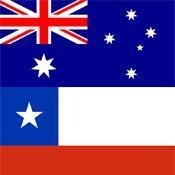
Legislation implementing the Australia-Chile Free Trade Agreement (FTA) passed through the Australian parliament last week, in a move that eliciting divided opinions from Australian horticulturists.
The FTA will see all tariffs eliminated by 2015, and will likely have more impact on Australia’s mining and coal industries – which account for the majority of Australian exports to Chile - than the horticultural sector
Wayne Prowse of Horticulture Australia Ltd said industry opinion was divided on the future impacts of the FTA, but there was agreement the needs of growers and exporters was not taken into account.
“Our needs were almost a non-event, they haven’t really been considered – that’s the view of the industry,” he told Fruitnet. “We’re disappointed.”
Mr Prowse said while there was concern Chile could flood the Australian market with low-priced produce based on their cheaper labour costs and similar season, the shipping realities meant there probably wasn’t much risk.
“There’s certainly concern they could put a lot more fruit into our market in our domestic season, but there’s divided opinion on whether that could happen,” he said.
“Given the distance, the shipping from Chile to Australia is not that easy. The tariffs from Chile haven’t been significant in the past anyway, and there’s still a lot of phytosanitary access they haven’t achieved.”
He added that Chile would probably push for more market access with the implementation of the FTA, and said the government already had access submissions.
“We’re disappointed the government has chosen to go this way when Chile is not a major trading partner and there are other markets to look at,” he said.
“Australia and Chile should be working together to service the Northern Hemisphere markets.”



